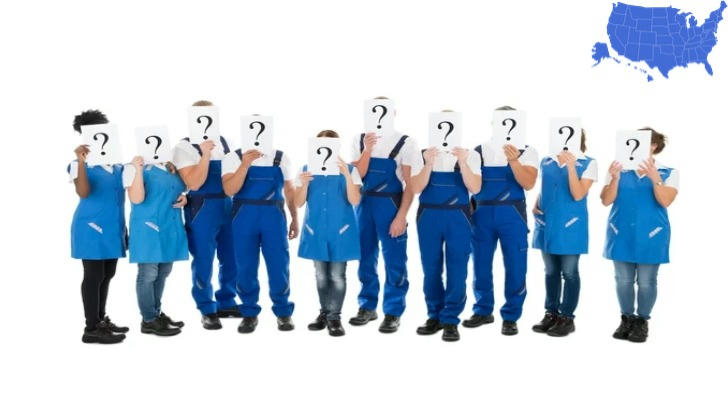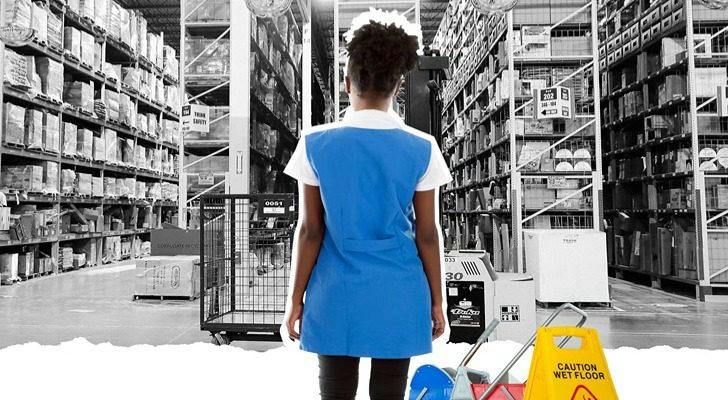Cleaners: Unsung Heroes Guarding Environmental Sanitation

In modern society, cleaners play an important role in ensuring the cleanliness and safety of public and private spaces. They are found in hospitals, schools, offices, shopping malls, factories, transportation hubs and other places. Although this profession is often not noticeable, their contribution is directly related to everyone's health and quality of life. This article will take you to understand the real work content, required skills, training paths and development prospects of cleaners.
1. What do cleaners do?
The duties of cleaners are far more than just "cleaning". They often need to handle complex and varied cleaning tasks, including but not limited to:
Floor sweeping and mopping (wooden floors, tiles, carpets, etc.)
Garbage collection and sorting
Disinfection of high-frequency contact areas such as toilets and hand washing areas
Wiping glass, door handles, desktops, etc.
Carpet cleaning or polishing using professional equipment
Refilling cleaning supplies (such as hand sanitizer, paper towels, etc.)
Implementing disinfection standards and safety procedures in specific environments (such as hospitals and food factories)
Sometimes, cleaners also need to deal with emergencies, such as dirt leaks, equipment overflows, emergency cleanups, etc.
2. What skills do you need to learn?
Becoming a qualified cleaner does not mean "no training required". In fact, many jobs require certain professional knowledge and operating skills, such as:
- Correct use of cleaning agents and disinfectants
- Cleaning methods and tool selection for different material surfaces
- Occupational safety knowledge: including slip prevention, chemical storage, wearing of protective equipment, etc.
- Equipment operation skills: such as floor scrubbers, vacuum cleaners, high-pressure cleaners, polishers, etc.
- Basic communication skills: Effectively coordinate work with customers, colleagues or supervisors
Some positions also require compliance with industry regulations, such as food factories, medical institutions or schools, which often have higher cleaning standards and regulatory requirements.
3. Is training or certification required?
Although most cleaning positions do not require a high degree, professional training is increasingly becoming an important way to improve competitiveness. Some regions or institutions provide the following types of training or certification:
- Vocational school or community training courses
- Industry association certification (such as commercial cleaning, carpet cleaning, high-altitude work)
- Internal training of employers (safety regulations, process standards)
Completing these courses can not only improve work efficiency, but also obtain better salary or promotion opportunities.
4. Working environment and development potential of the cleaning industry
The working hours of the cleaning industry are diverse and suitable for the needs of different groups of people. For example:
- Full-time or part-time flexible choice
- Multiple shift modes for day, evening and night shifts
- Can work independently or join a team
As people pay more attention to environmental hygiene and health, the cleaning industry shows a trend of sustained growth. Especially in the fields of office buildings, medical and health care, schools, hotels, etc., the demand for professional cleaners is increasing.
5. From "cleaner" to "service expert"
Cleaning is not only an entry-level profession, but also a starting point for long-term career development. Through accumulating experience and continuous learning, many people have achieved promotion from front-line positions to management:
- Senior cleaner → Regional supervisor/foreman
- Special cleaning technician (such as disinfection expert, polisher, exterior wall cleaning, etc.)
- Facility manager, property service manager
- Start your own business, run a cleaning service company or take on commercial projects
For example, Mr. Lin, a cleaner from Southeast Asia, was initially responsible for the night shift cleaning of an office building. After several years of accumulation, he mastered the operation procedures of various equipment and obtained a professional certificate from the local cleaning industry association. After that, he was promoted to cleaning supervisor and led a team of 10 people to serve multiple commercial buildings, and his annual income also increased significantly.
6. The meaning behind the profession
Although cleaning work is a "behind-the-scenes profession", it provides the most basic guarantee for our lives. From the classroom where children sit every day, to the office where we work, and the subway station where we wait for the bus, every clean and bright environment has the efforts of cleaners behind it.
They not only clean the space, but also maintain people's dignity and public health. In many places, cleaners are gradually gaining more respect and recognition. This change represents the society's re-understanding of the value of workers.

✅ Summary
Cleaning is a stable, practical and promising profession. It does not require high academic qualifications, but it puts forward practical requirements for responsibility, meticulousness and professionalism. In a social environment that pays more and more attention to hygiene standards, the role of cleaners is being redefined. It is no longer just "cleaning", but a service professional who "creates a healthy space".
